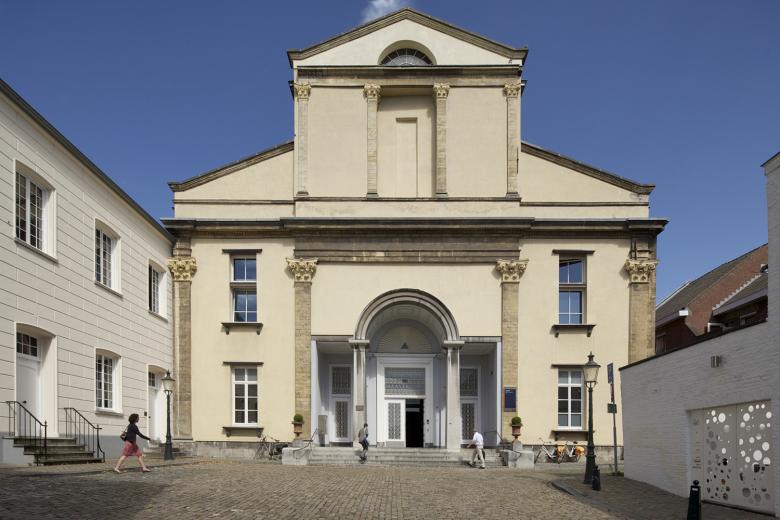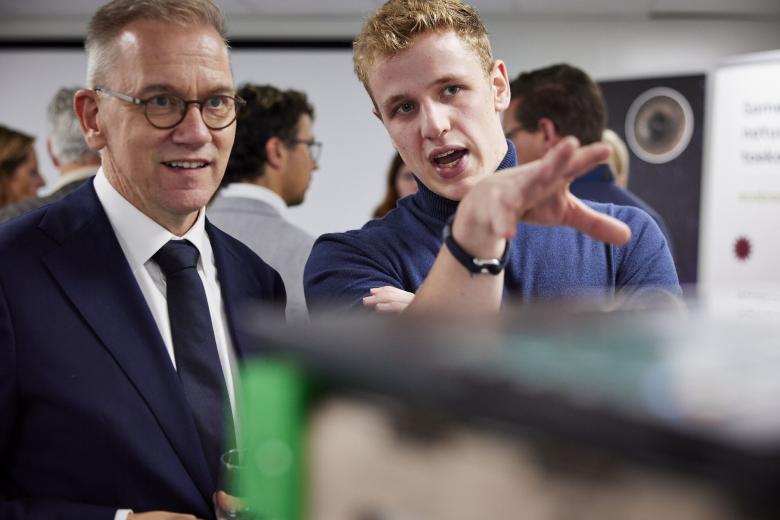Improve fact-finding through forensic radiology
Radiology should have a permanent role in forensic medical examinations and in determining the cause of natural and unnatural death, according to professor Paul Hofman, who was appointed Professor of Forensic and Post-mortem Radiology at Maastricht University on Friday 24 June. In this capacity, professor Hofman is involved in a special field that uses modern imaging technologies to determine the cause of death. Maastricht UMC+ is currently the national centre of expertise in the Netherlands regarding forensic radiology.
Many patients are familiar with modern imaging technologies, including MRI or CT scanning. The radiologist produces a precise image of the interior of the body in order to locate a tumour or identify bone fractures. What is much less known is that these technologies are also used to examine a corpse, for instance to determine the cause of death and to ascertain whether death was natural or unnatural. This has various applications, both clinical and as a tool to support forensic investigation. A huge advantage in using imaging is that the body remains intact; this presents far fewer ethical and moral objections than autopsy. Radiology can thus make an important contribution to quality control in clinical care and to criminal investigations.
Criminal investigation and identification
The Maastricht UMC+ Forensic Radiology Unit is engaged around 120 times per year to scan the mortal remains of potential victims of crime. ‘This provides the public prosecutor with valuable information’, says Hofman. ‘We can assess whether the cause of death was natural or unnatural and make relevant forensic information available quickly. For example, we can determine the trajectory and position of a bullet, present a visual image of bone fractures or of the cause of internal bleeding, or determine the depth of a knife wound.’ The Forensic Radiology Unit was also involved in the investigations following the MH17 disaster. The Maastricht team played a key role both in identifying victims and in the criminal investigation.
Valuable information
A scan of mortal remains is also valuable in a clinical setting. Post-mortem examinations used to be performed regularly. Today, these only take place in three per cent of all deaths even though, after a post-mortem examination, the conclusion as to the true cause of death changes in as much as a quarter of cases. As far fewer ethical objections are attached to scanning a body, imaging can contribute to improving the quality of post-mortem examinations. Hofman: ‘Doctors can actually derive a lot of valuable information from determining the actual cause of death. This can then contribute to improvements in care as well as offer the family and next of kin clarity and peace of mind.’
National coverage
Hofman is working towards national coverage for forensic radiology. Apart from Maastricht UMC+ as the centre of expertise, the Meander Medical Centre in Amersfoort also currently performs scans for forensic purposes. The images are assessed in Maastricht. ‘The ultimate goal is for high-quality forensic radiological research to be available to the police and the judiciary throughout the Netherlands. As the centre of expertise, this will enable us to improve the quality of post-mortem examinations in cases of potentially unnatural death.’
Also read
-
UM seeks new balance between the university and student associations
Maastricht University is suspending its relationship with student associations Tragos and Circumflex until further notice. Discussions with the boards of these associations have revealed that agreements outlined in the Code of Conduct have not been upheld. Experience from recent years shows that these...
-
Opportunities and concerns take centre stage during Minister Bruins' working visit to Maastricht
On Friday afternoon, 18 October, Minister Eppo Bruins (Education, Culture, and Science) paid a working visit to Maastricht. There, he was briefed by Limburg's educational institutions on current educational topics from the Education Manifesto. The minister also engaged in conversations with teachers...
-
Education minister's parliamentary letter: threat to education and region draws nearer
On 15 October, education minister Bruins informed the Netherlands House of Representatives of his plans to reduce the number of international students in the Netherlands through the Internationalisation in Balance Act (‘Wet Internationalisering in Balans’). Maastricht University has serious concerns...